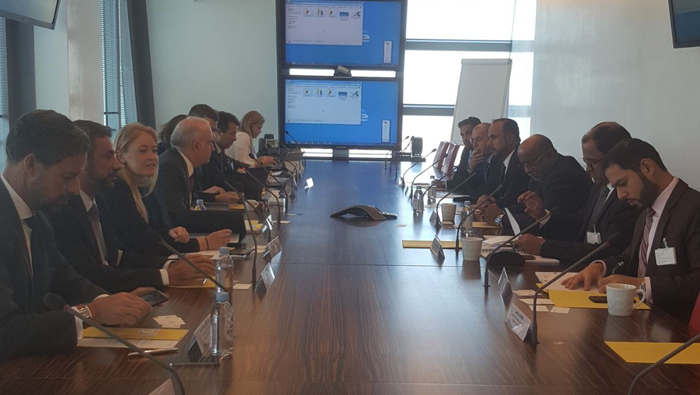
Muscat: Engie recently received an official delegation from the Special Economic Zone Authority of Duqm (Sezad), led by Yahya bin Said Al Jabri, Chairman of Sezad and Chairman of the Capital Market Authority (CMA) in Paris.
Sezad, located in the Duqm area, 550km south of Muscat, is the biggest special economic zone in the Middle East region, and includes a port, a ship dry dock, various industrial complexes, a commercial and tourism area, and a logistics services area. Overall, Sezad will expand over 2000km². The area, which will be fully operational in 2030, aims to become a regional logistical hub around ship maintenance activities, trans-shipment of containers, processing and export of minerals and hydrocarbons, thanks to its strategic position, on the Silk Road and near Omani oil and gas fields.
A Sezad delegation visited a district cooling centre managed by Engie and the Engie Lab Crigen, the group’s research and operational expertise centre dedicated to gas, new energy sources and emerging technologies.
“I would like to thank Engie on this day of success. I welcome Engie representatives to visit Sezad to explore more opportunities in Duqm, where we are looking forward to business implementation across different sectors,” Al Jabri, said.
“Sezad is a strategic project for the Sultanate, a new market willing to diversify its economy, with a strong concern for sustainable development, in a country respectful of nature," Sébastien Arbola, CEO of Engie Middle East, South & Central Asia and Turkey, said.
"Engie would be honoured to participate in the development of Sezad, particularly in the fields of district cooling solutions for sustainable city development and hydrogen,” he added.
Active in Oman for over 20 years, Engie employs 460 people in the country in the fields of power generation, water desalinisation and energy services. Engie operates a total production capacity of 8GW of electricity and 200MIGD of desalinated water in Oman.